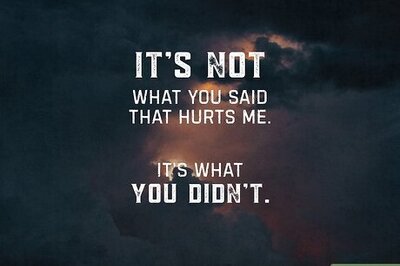
views
New Delhi: "So where the bloody hell are you?"
That's Australian for "Welcome to Australia". At least the new Australian government's tourism promotion agency, Tourism Australia’s ad campaign would make you believe that. The ad shows a bikini-clad woman on a beach pouting the new catch phrase to lure in visitors.
The Brits aren’t amused, though. Britain has found the ad rude and offensive and has banned it from being aired on its television networks.
The Australian Government is not flustered. They say the ban is unexpected publicity for their campaign. However, they say it is unjust and have asked the ban to be lifted.
This is not the first time that such "well-intended" ad campaigns have raised the hackles of purists. Back at home in India, there have been numerous instances when the ad mad world has ignited passionate protests.

The most recent incident was a print campaign for Knockout pepper spray. The ad suggested that parents were to be blamed for sexual assaults for failing to arm their daughters with cans of pepper sprays.
The advertisement, which appeared in major dailies asked: "Tomorrow if your daughter gets raped who is to be blamed? The rapist or you?" The ad then recommended the spray as a deterrent.
Following an uproar from women's groups, the ad was withdrawn.

But the brand that has received maximum flak was a Fair and Lovely cream ad. It showed a woman whose father laments at not having a son to support the family. But after using the product, the daughter lands a well-paying job as an airline attendant.
In India, the fairness industry accounts for 60 per cent of skincare sales, and it is not only women who are the target market but the brand also enjoys significant male usership.
PAGE_BREAK
Perhaps, playing on this perception that fair is truly lovely, the product was positioned thus. But the campaign had more people glowing with anger than with a pretty face.

Ads have also managed to rake up political storms. Like in the case of Cadbury India’s campaign which showed its Temptations line of chocolates to be an equivalent of Kashmir - "too good to share".
Amid mounting pressure, Cadbury Schweppes London admitted that it had strayed off a 200-year path and into off-limits political territory and scrapped the punchline.
Ads pertaining to gender bias have always incited the Indian masses and Kotak Mahendra was once at the receiving end.
The ad showed a father worried for his son’s education and his daughter’s marriage. There were loud protests, with activists claiming such ads projected daughter as a liability and son as an investment. They reasoned, it strengthened the stereotype that the only future of a young woman was marriage and promoted the concept of dowry.

However, the moot question that arises is whether it is people who are missing the message in the ads or the ads that are unsure of what they wish to project.

















Comments
0 comment